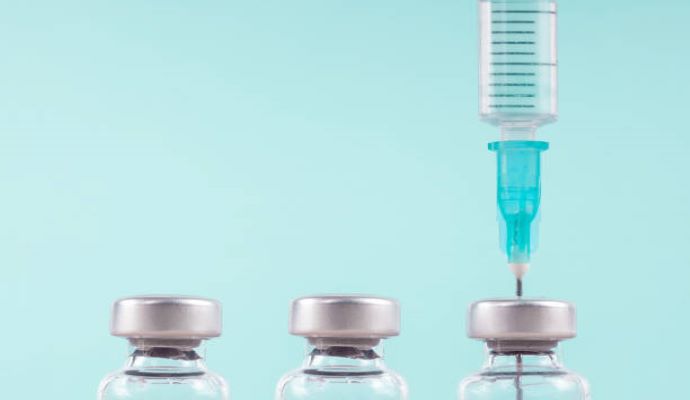Decreased COVID-19 Vaccination Rates: A Pediatric Health Risk
A recent article from the Kaiser Family Foundation found that pediatric COVID-19 vaccination rates have decreased, which may have implications for health risks.

Source: Getty Images
- The Kaiser Family Foundation (KFF) recently found that pediatric COVID-19 vaccination rates in children under 5 years old have decreased despite the age bracket’s very recent eligibility. Declining vaccination rates may pose a health risk for patients under the age of 5.
Less than two months ago, on June 15, 2022, the FDA unanimously voted to approve an emergency use authorization (EUA) for the Pfizer vaccine for children under 5 years old. This was the first COVID-19 vaccine approval in the United States for children of that age.
KFF suggests that “vaccinations peaked among those under 5 about two weeks into their eligibility, even before the July 4 holiday.” On July 1, the daily vaccination rate for children under 5 was approximately 28,000 and dropped to 13,000 by July 20.
This peak is significantly lower than the 271,000 daily dose peaks for children between 5 and 11 years old.
The implications of this decreased vaccination rate go beyond the risk of infection. A recent article published in JAMA Open Network identified post-COVID-19 conditions (PCCs) in pediatric patients 90 days after infection.
PCCs are mainly attributed to adult patients infected with the virus. However, the study found that 9.8% of hospitalized and 4.6% of non-hospitalized pediatric COVID-19 patients experienced PCCs, with respiratory and systemic PCCs being the most common.
“Risk factors for reporting PCCs included the number of acute symptoms, length of hospitalization, and older age. These findings can inform public health policy decisions regarding COVID-19 mitigation strategies for children and screening approaches for PCCs among those with severe infections,” stated the researchers in the publication.
While the lingering effects of COVID-19 are being examined, limited data has prevented scientists from determining just how long and severe the consequences may be. Several organizations, including the American Academy of Pediatrics, recommend vaccinations.
According to an article by Johns Hopkins Bloomberg School of Public Health, COVID-19 vaccination has reduced the risk of multisystem inflammatory syndrome in children by 91%.
In addition to its efficacy, the vaccine has also been deemed safe by multiple healthcare organizations, including but not limited to the CDC and the FDA. Data from the Johns Hopkins article also found that 97.6% of reported side effects were not severe.
Furthermore, they wrote, “the most frequently reported side effects were swelling, or redness at the injection site and fever, headache, and fatigue, but most were mild and did not interfere with normal daily activities.”
This suggests that the benefits of the vaccine outweigh any side effects. As new COVID-19 variants appear, parents are encouraged to ask their child’s pediatrician about vaccination. Under the guidance of a healthcare professional, children may receive the vaccine, thus protecting themselves and others from infection and its prolonged impact.
